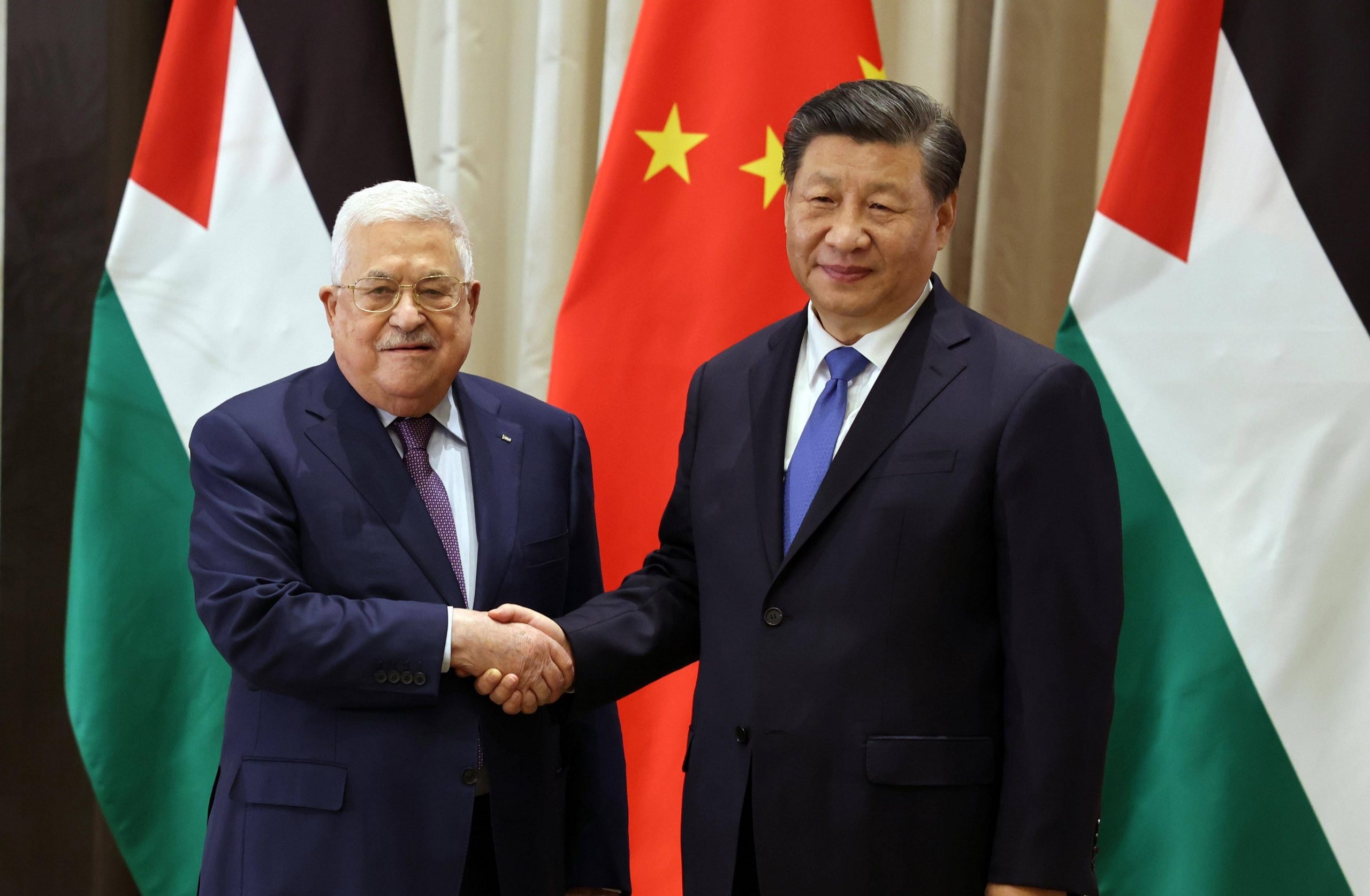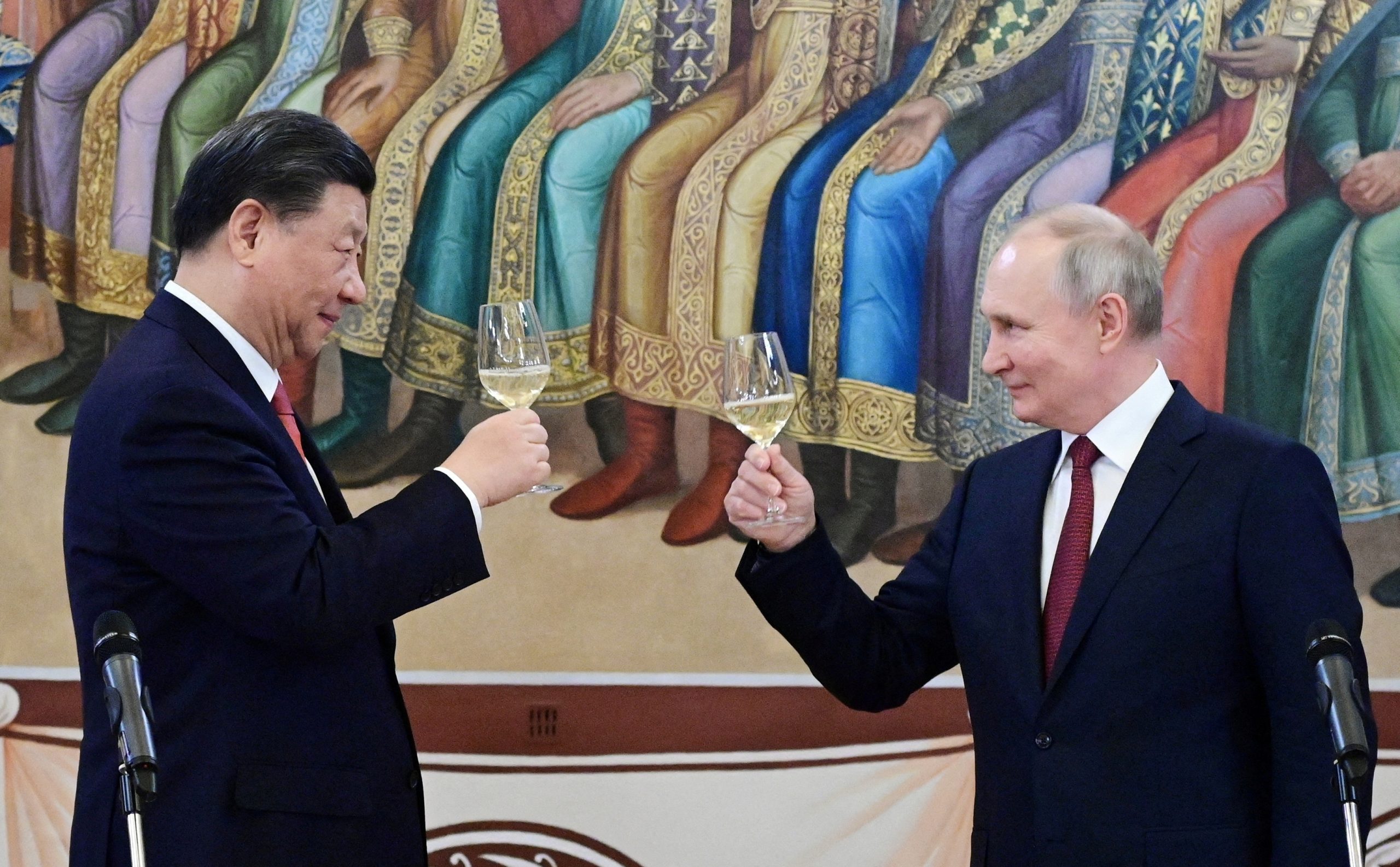Publications
INSS Insight No. 1706, April 4, 2023
Iran and Saudi Arabia agreed to renew their diplomatic relations following talks held in Beijing. Ten days after the signing of that agreement, Chinese President Xi Jinping visited Moscow, and his arrival there was seen by many as another possible mediation attempt by China – this time, between Russia and Ukraine. These events suggest that China is interested in positioning itself as an international mediator, against the backdrop of China’s Global Security Initiative (GSI). Even if the events are primarily vague rhetoric and not active involvement in any mediation, words also have a power of their own. The question, therefore, is what implications Chinese mediation would have for the European and Middle Eastern spheres – and, of course, for the great power competition.
On March 10, 2023, following talks in Beijing, Iran and Saudi Arabia announced their agreement to restore diplomatic relations. The news that China was involved in brokering the agreement surprised many in the international community, since China is not known as a country that is involved in mediating between rival parties – let alone since the reconciliation talks between Iran and Saudi Arabia had been going on for over two years, under Iraqi and Omani sponsorship. Questions about China’s role in reaching the agreement remain unanswered thus far, but it is clear that Chinese diplomacy has recorded an important accomplishment in its rivalry with the United States for influence on the global stage.
Ten days after the agreement between Iran and Saudi Arabia was signed, Chinese President Xi Jinping traveled to Russia, his first overseas trip since his historic appointment to a third term of office. Many people viewed Xi’s visit to Moscow, when the dust had yet to settle on the agreement between Iran and Saudi Arabia, as another possible mediation attempt by China, this time between Russia and Ukraine, which have been involved in a bloody war for over a year. An article published by the Chinese President in the Russian state media – a typical practice before every state visit – gave added impetus to this assessment. Xi wrote about the Ukrainian issue, stating that, “There is no simple solution to a complex issue.” Xi also stressed that “China has all along upheld an objective and impartial position,” and he reiterated his 12-point proposal for a diplomatic solution to the crisis, based on the principle of sovereignty and territorial integrity of every member of the United Nations. Xi’s plan calls for a reduction in tension until a ceasefire is achieved – but does not call for the withdrawal of Russian troops.
These speculations were laid to rest when the statements issued by the two Presidents, before and after their meeting, made it clear that the warring sides would not be signing a peace agreement any time soon. Although the Russian President expressed his willingness to renew peace talks as soon as possible, based on the Chinese proposal, in the statement released to the media, Putin added that there was no indication of similar willingness on the part of Kyiv or the West. The closing statements also did not call for a ceasefire, and it seems that the two Presidents were aiming more for the creation of a general security plan, which would take Russia’s security needs into account, alongside those of NATO. Nonetheless, it is not inconceivable that behind the scenes, the Chinese put out feelers ahead of a future agreement, which would come to fruition at a later stage. Ukrainian President Volodymyr Zelenskyy himself has invited China to be a part of efforts to end the conflict and called on President Xi to meet with him to discuss China’s 12-point reconciliation plan. A first conversation between the Chinese leader and Zelenskyy since the start of the war would be a harbinger of China’s genuine willingness to become involved in that bloody conflict.
Either way, it is entirely possible that these developments suggest that China is keen to become a part of the international mediation business, which fits perfectly with the Global Security Initiative (GSI) that the Chinese President announced on February 21, 2022. Even if this is mainly vague rhetoric and not active involvement in any mediation efforts, words also have a power of their own. The question, therefore, is what implications Chinese mediation would have on the European and Middle East spheres – and, of course, on the great power competition.
Washington’s response to Chinese involvement in the agreement between Iran and Saudi Arabia was restrained, possibly because Riyadh updated the United States on the contacts and because, immediately after the agreement was inked, the US announced that Saudi Arabia would purchase 78 jetliners from Boeing at a cost of about $37 billion. In the Russia-Ukraine context, the United States’ major objective is to prevent Russia from securing any gains and, at the same time, thwarting Chinese military and economic aid. Washington has relayed clear messages to Beijing – some would even call them blunt – warning the Chinese not to send arms to Russia, although on March 24 President Biden said that thus far, it is not known if China has done this. Europe, too, where there is concern over Chinese efforts to gain an economic foothold on the continent, would not look kindly on any Chinese mediation effort that increases its standing. Therefore, the United States and Europe have counted on the military and economic aid that they provide to Ukraine to persuade Kyiv to oppose any significant Chinese involvement in the mediation with Russia – if and when such a process occurs. It appears that China will find it hard to force Russia to accept Ukraine’s insistence on a complete withdrawal of Russian forces from the territories it captured. If so, one can view Zelenskyy’s invitation as a polite rejection of the Chinese offer of mediation – without insulting a country that is, after all, a permanent member of the United Nations Security Council and without turning it into a hostile actor.
The Middle East was also on the agenda for the presidential talks in Moscow, with both sides welcoming the normalization of relations between Saudi Arabia and Iran. They also expressed support for a resolution to the Israeli-Palestinian conflict based on the two-state solution, and gave their backing to the sovereignty, independence, and territorial integrity of Syria and Libya. At the end of their meetings, the Presidents promised to establish a collective security framework for the Gulf region, based on the security proposals for that region that they had suggested. But the reality in the Middle East does not wait for superpowers: it was recently reported that Syria and Saudi Arabia are also expected to normalize their bilateral relations. It is possible that this emerging agreement will be signed in Beijing, but even if not, China will still be able to portray it as part of its Global Security Initiative.

At the same time, China’s chances of leveraging its success in brokering a deal between Saudi Arabia and Iran to increase its influence in the Middle East, which is so rife with conflict, are not high: Beijing does not enjoy the same kind of partial influence that it has in Tehran or the expanding economic presence that it has in the Gulf elsewhere in the region. China’s ability to play a significant mediating role is a direct function of its economic strength. Thus far, this has manifested itself primarily in the Gulf, a region rich in energy resources and capital, and very little in more impoverished areas. China’s investments in countries neighboring Israel are limited and do not enable Beijing turn itself into a significant mediator – if that is its aspiration. China’s activities in the Horn of Africa also shine a spotlight on a possible mediation effort by Beijing, this time between Egypt and Ethiopia over water from the Nile. Here, however, China would have to compete with the United States, which is already active on that front.
Nonetheless, Prof. Victor Gao, a former media spokesman for the Chinese Communist Party and someone who has close ties with the current regime, is not only convinced that China will launch similar mediation efforts regarding additional conflicts in the Middle East, but also states that, in relation to the Israeli-Palestinian conflict, “it is time to examine a new initiative, new ways of thinking …perhaps by means of China acting as a mediator, a guarantor, or a helping factor” in order to increase the chances of peace. This raises a very interesting question: Does China have the ambition and/or the ability to achieve the status of acceptable mediator for both sides, or one that does not run into opposition from other international actors?
Historical precedents of attempts to mediate in the Israeli-Palestinian conflict would likely notencourage the Chinese to invest much effort in doing so. Since 1967, Israel has vehemently objected to any active mediation by outside actors and insisted on direct negotiations. It veered from that policy in 1973, when it allowed full US involvement in the 1979 peace deal with Egypt and Washington’s partial involvement in agreements with the Palestinians, with Jordan, and iin achieving the Abraham Accords. The Palestinians, notwithstanding their long-held desire to internationalize and resolve the conflict, have agreed to US involvement, on the understanding that Washington is the only international actor with the clout to pressure Israel and extract concessions from Jerusalem. In the current situation, it is unlikely that there will be any change in the Israeli approach, especially since the resumption of negotiations toward a full resolution of the Israeli-Palestinian conflict is not on the horizon. However, if China decides to try and become a recognized international mediator, by investing in regional projects in which Israel, Jordan, and the UAE are involved and/or in projects in the territory controlled by the Palestinian Authority, Israel and the United States will face a dilemma. But even this course of action is no guarantee that China will manage to upgrade beyond being a permanent member of the UN Security Council. Countries like the United Kingdom or France have helped the Palestinians for decades, but failed in becoming active and influential mediators in the efforts to resolve the Israeli-Palestinian conflict.
Therefore, when it comes to encouraging Chinese involvement in economic projects, the Israeli political leadership must be careful to ensure that this involvement does not jeopardize relations with the United States. Israel must also use the diplomatic tools at its disposal to clarify that it will not change the modus operandi that has guided it thus far in its handling of efforts to resolve every aspect of the Arab-Israeli conflict, and primarily the conflict with the Palestinians.



